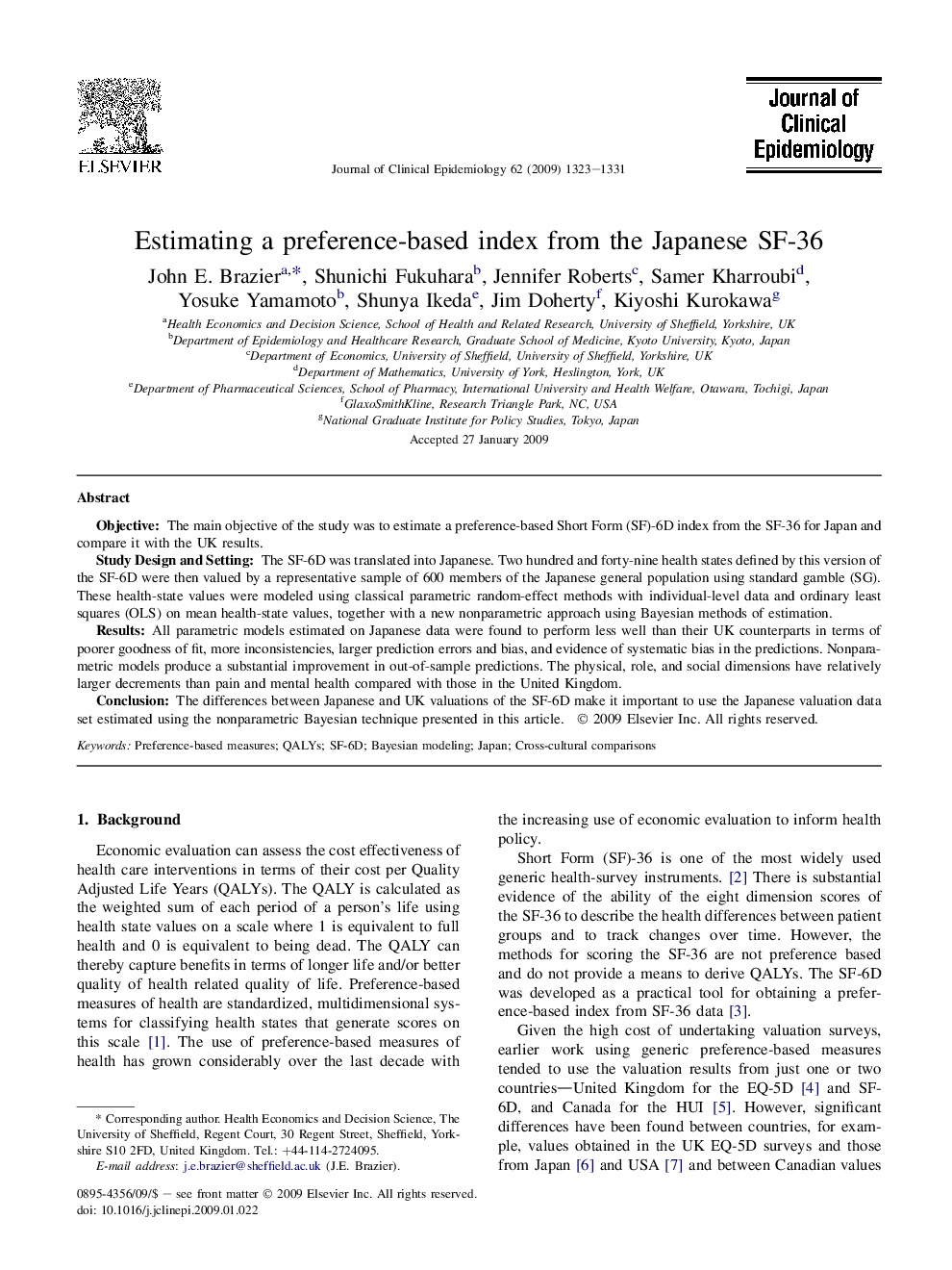| Article ID | Journal | Published Year | Pages | File Type |
|---|---|---|---|---|
| 1083361 | Journal of Clinical Epidemiology | 2009 | 9 Pages |
ObjectiveThe main objective of the study was to estimate a preference-based Short Form (SF)-6D index from the SF-36 for Japan and compare it with the UK results.Study Design and SettingThe SF-6D was translated into Japanese. Two hundred and forty-nine health states defined by this version of the SF-6D were then valued by a representative sample of 600 members of the Japanese general population using standard gamble (SG). These health-state values were modeled using classical parametric random-effect methods with individual-level data and ordinary least squares (OLS) on mean health-state values, together with a new nonparametric approach using Bayesian methods of estimation.ResultsAll parametric models estimated on Japanese data were found to perform less well than their UK counterparts in terms of poorer goodness of fit, more inconsistencies, larger prediction errors and bias, and evidence of systematic bias in the predictions. Nonparametric models produce a substantial improvement in out-of-sample predictions. The physical, role, and social dimensions have relatively larger decrements than pain and mental health compared with those in the United Kingdom.ConclusionThe differences between Japanese and UK valuations of the SF-6D make it important to use the Japanese valuation data set estimated using the nonparametric Bayesian technique presented in this article.
